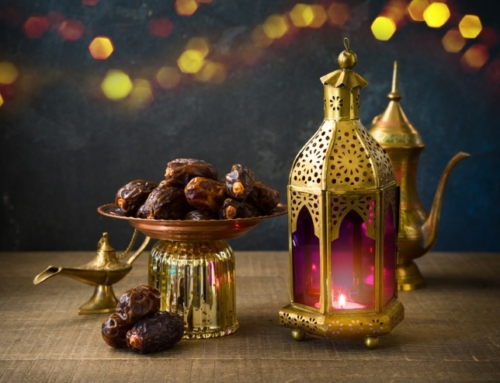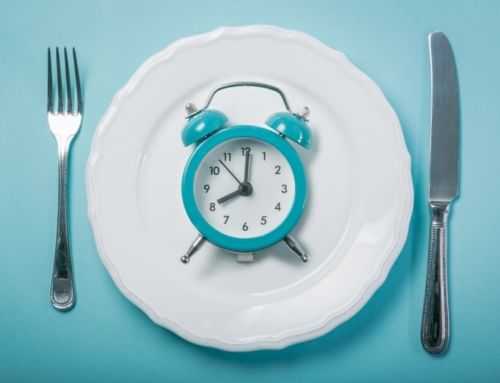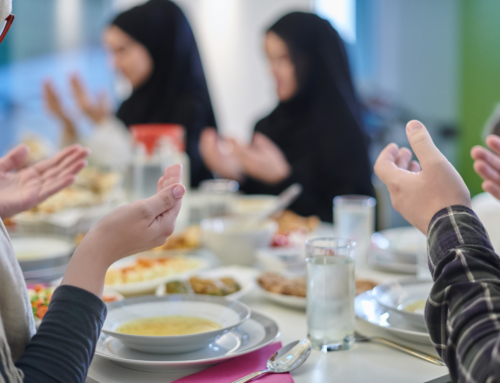Habeeba Husain
We are more than a week into the month of Ramadan, so it is quite likely you heard about it from your Muslim friends, coworkers, or social media personalities online and in person. People seem to fill pity toward Muslims when they are fasting from dawn until sunset, especially in these longer days of the year. However, it is important to know that although Muslims love their tasty food, Ramadan is our favorite time of the year!
The typical day in Ramadan starts earlier than most are used to. Muslims are to wake before dawn (for me, that is about 3:00AM) to partake in a predawn meal called suhoor. The Prophet Muhammad (may the blessings and peace of God be upon him) said, “Partake in the predawn meal, for truly in the predawn meal there is blessing” (Bukhari). It is a really early morning—or rather, the very end of the night. Although Muslims have running jokes about looking and feeling like zombies at this odd hour, they do their best to remove themselves from their beds to eat a super early breakfast. Not being able to consume a meal or sip a glass of water for another sixteen to seventeen hours is quite the motivation!
In all seriousness however, this time is the most precious of both the day and the night. Muslims believe God is closest to us during these last moments of the night before dawn. After eating their suhoor, many Muslims try to spend the time before dawn praying the Tahajjud prayer. The Prophet (may the blessings and peace of God be upon him) said, “God descends every night to the lowest heaven when one-third of the night remains and says: ‘Who will call upon Me, that I may answer Him? Who will ask of Me, that I may give him? Who will seek My forgiveness, that I may forgive him?’” (Bukhari). This last third of the night is the perfect time to turn to God, pour our hearts out and ask Him for whatever we need.
At the time of dawn, the first of the five daily prayers called Fajr becomes obligatory to perform before sunrise. After praying this, depending on the individual’s schedule, they may sleep until they need to wake for school or work, or they may engage in Quran recitation. The remainder of the daylight hours consists of the regular activities one would experience outside of Ramadan (minus the food and drink), but with an added awareness that one is fasting for the sake of God. Muslims need to pass on the refreshments offered at meetings and skip their morning coffee. Lunch at school can be challenging with the aroma of food surrounding a person as well as the questions about the missing meal. But the hunger pangs and thirst due to dehydration are a lot more meaningful and a lot more worth it when keeping the reason for fasting in mind.
Prior to sunset, Muslims scurry to get iftar ready. This is the meal eaten when breaking the fast. The Prophet Muhammad (may the blessings and peace of God be upon him) used to break his fast with dates, so many Muslims do the same. The last moments of the fasting day are another time when supplication is highly encouraged, for it is said to be a time of acceptance. When the sun sets, Muslims break their fast and feel a sense of satisfaction and gratefulness. They made it through a fasting day!
At night, many Muslims opt to head to the mosque for the last obligatory prayer of the day as well as a special Ramadan prayer called Taraweeh. This worship can take up to two hours because many imams try to finish the entire recitation of the Quran over the course of the month during the prayer. Now replenished with their iftar, Muslims find the energy to stand in prayer and listen to the recitation of the holy Quran as well as meet fellow people in the community at the mosque.
Upon the completion of the prayer, it is time to head back home. Some may be able to squeeze in a couple of hours of sleep before the time of suhoor comes in again. Others may engage in more worship or eat an early suhoor and call it a night. Soon enough, another day of fasting will begin.
Fasting in Ramadan is definitely challenging, and Muslims learn to exhibit much self-control during the month. While it can be difficult, it is overflowing with opportunities for reward and the pleasure of God. It is in this month that lives are changed. It is in this month that charity is generously given. It is in this month that many Muslims finally find the strength and motivation do what they have been wanting to do all year—refocus their lives on their faith.








